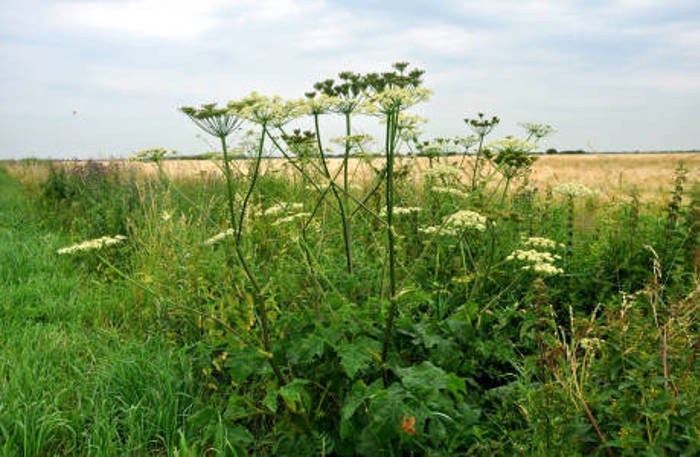Phototoxic reaction
Phototoxic reactions occur as a result of skin contact with phototoxic plants followed by exposure to ultraviolet rays from natural or artificial sunlight. The reaction damages the cells in the skin and can lead to sores and blisters.
Persian hogweed and giant hogweed (Heracleum sp.) are plants that are known to cause this type of reaction. In order to cause a phototoxic reaction upon skin contact, most plant saps must remain in contact with the skin for 30-120 minutes.
Symptoms of poisoning by phototoxic umbellifers
The main symptom is a skin rash. The rash usually appears 1-3 days after skin contact with the plant and exposure to sunlight (natural or artificial), and is limited to the areas that have been in contact with the plant.
The reaction has the appearance of severe sunburn, with:
- reddening of the skin
- blisters
- severe stinging
The skin area may suffer prolonged hyperpigmentation (darkening of the skin) that can last up to several months. The exposed area may become hypersensitive to UV light for a long period of time – from months to years.
First aid in the event of skin contact with phototoxic umbellifers
- If you are aware that you have come into contact with a phototoxic plant before the skin reaction has occurred, wash the skin thoroughly with soap and water.
- You should also apply sunscreen and cover the skin area for at least 2 days after exposure, even if you do not have any symptoms.
- Bathing and swimming should also be avoided for 2 days, as this can lead to aggravation.
- In the case of severe or painful symptoms, you should visit a doctor for an assessment.
Other umbellifers
You can find out more about selected umbellifers here: Identifying poisonous umbellifers in Norway.
